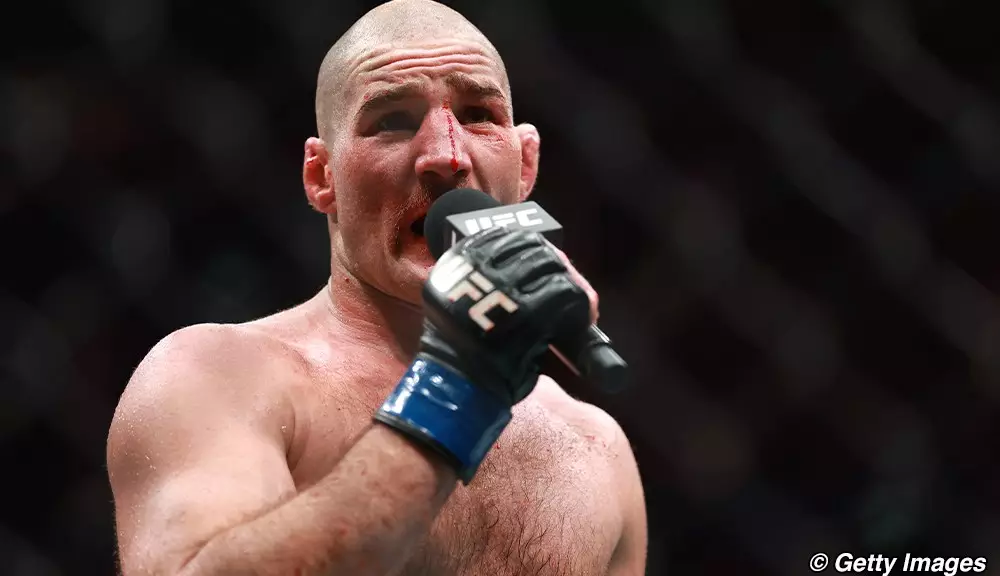In the vibrant, often unforgiving world of mixed martial arts (MMA), fighters are scrutinized with an intensity that few other sports figures endure. Recently, Sean Strickland found himself at the center of a media storm following his loss to Dricus Du Plessis at UFC 312. Critics from all corners of the MMA community have weighed in, but amidst the cacophony, a couple of seasoned veterans, Daniel Cormier and Chael Sonnen, have offered support. This article delves into the dynamics of public perception in MMA, highlighting the challenges fighters face and the lessons this situation presents.
Sean Strickland’s title fight ended in a unanimous decision loss, leaving him battered and bloodied. The aftermath has seen a deluge of criticism levied against him, ranging from fan disappointment to harsh assessments by fellow fighters and analysts. While disappointing performances are not uncommon in MMA, the sheer volume of backlash directed at Strickland raises questions about the nature of accountability in the sport. Is this animosity a reflection of high expectations? Or does it signify a broader issue regarding how fighters navigate their emotional and physical battles in the octagon?
Cormier and Sonnen stand out as defenders in the tumult, arguing against the intensity of the backlash. Their assessment emphasizes an important point: athletes are human, subject to the same vulnerabilities as anyone else. Cormier specifically addresses the unreasonable expectations placed on fighters, noting that losing is an inherent part of competitive sports. This highlights the psychological complexities athletes grapple with when facing public criticism after a loss—particularly for fighters like Strickland, who are known for their brash personas and confident declarations.
Strickland’s defeat comes with additional layers of pressure given his pre-fight bravado. A fighter’s willingness to speak boldly can often backfire when outcomes do not align with expressed intentions. Sonnen acknowledges that while Strickland may not have fulfilled his pre-fight promises, this does not warrant the level of derision he has faced. Instead, Sonnen argues that the damage inflicted upon Strickland—evidenced by a broken nose—should not be understated. It serves as a testament to the pain and intensity of combat sports, where one must balance mental fortitude and physical capability.
This incident exposes a crucial element of the sport: the respect inherent in endurance. In the face of overwhelming odds, Strickland chose to persist rather than concede. This decision to remain in the fight, regardless of the circumstances or perceived futility, embodies a warrior’s spirit often romanticized in the fight community. It challenges the perception that fighters must always emerge victorious to maintain honor or credibility.
Beyond the conversation surrounding Strickland, the performance of Dricus Du Plessis also deserves recognition. The narrative frequently centers on the losing fighter, but it is essential to acknowledge Du Plessis’s skill and strategy that led to his victory. Sonnen’s argument that Du Plessis executed a superior game plan highlights the importance of recognizing excellence in performance, regardless of the outcome for the opponent. Fighters must acknowledge their competitors’ skills and recognize when they are simply outmatched on the night.
Moreover, Sonnen’s criticism of those piling on Strickland opens a broader discussion about how the MMA community can cultivate a more supportive environment. Criticism, while necessary for growth, should encourage athletes rather than break their spirit. The dialogue around fighters’ performances should shift from punitive commentary to constructive criticism, fostering an understanding of the sport’s complexities.
Ultimately, the controversy surrounding Strickland’s bout reveals significant insights into the interactions between fans, fighters, and analysts. Strickland’s experience underscores the reality that while fans and media hold the power of perception, that influence can sometimes crumble an athlete’s trust in themselves. Rather than viewing losses as failures, fans could find value in narratives that celebrate resilience and the pursuit of excellence through adversity.
The MMA community needs to adopt a more empathetic approach toward fighters like Strickland. As discussions about performance and accountability continue, it is vital to balance the criticism with an appreciation for the sheer will and determination these athletes display in the octagon. Strickland’s story serves as a reminder that every fight is a journey, deserving of respect and understanding, both in victory and defeat.

